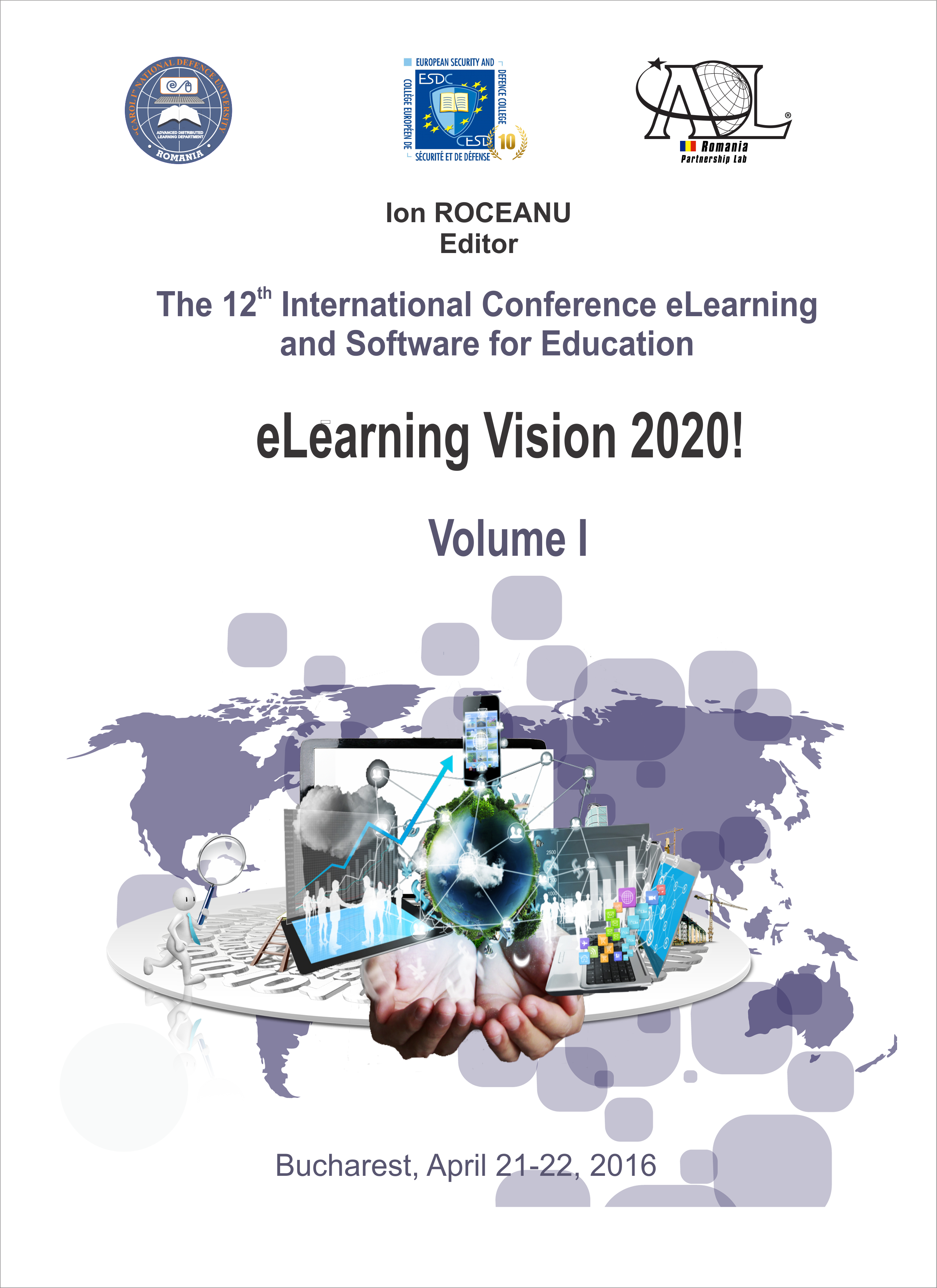MOBILE APPLICATIONS FOR CONCEPT MAPS: ANALYSIS AND PROPOSED CRITERIA FOR ITS USE IN EDUCATION
MOBILE APPLICATIONS FOR CONCEPT MAPS: ANALYSIS AND PROPOSED CRITERIA FOR ITS USE IN EDUCATION
Author(s): Rosa Eva Valle Florez, Roberto BaeloSubject(s): Education, Military policy, Vocational Education, ICT Information and Communications Technologies
Published by: Carol I National Defence University Publishing House
Keywords: m-learning; mobile apps; mind map; concept maps; mobile devices;
Summary/Abstract: The learning orientation towards the acquisition of basic competencies represents a shift in the ways of learning. In order to solve the problems of everyday life (present and future), the emphasis is on the achievement of basic skills that integrate formal (academic), non-formal and informal learning. In addition, they attempt to encourage the development of lifelong learning. In this paper, we use the "Digital Competence" and "Learning to Learn" as a starting point for the analysis of different mobile applications (apps). The “Digital Competence” is based on the acquisition of skills to obtain, process, organize and communicate information with the intention to transform it into knowledge, using different resources and based on ICT supports. Meanwhile, the "Learning to Learn" competence is based on the acquisition of the necessary skills that allow us to regulate our own learning processes in an autonomous and efficient way. The development of this competence involves assimilation and awareness of the abilities that come into play in learning as finding, understanding, selection, analysis, synthesis and association of relevant information. According to the latest contributions of neurocognitive and constructivist psychology, mind and concept maps are highly useful strategies for the development of the competencies mentioned above. This study is based on two objectives: 1. Perform an updated review of the major scientific contributions related to the development and implementation of concept maps with educational purposes; 2. Analyze the most frequent apps that are used which allow the development of concept maps. In this way, we obtain information on the relevance and variety of work areas in which mind maps are used, defining criteria analysis for the apps. Based on these criteria, apps are analyzed according to the intended purpose. The procedure used comes from a review of the most relevant scientific production on the topics addressed (250 retrieved documents), included in the database Web of Science (ISI) and Scopus. The recovered production is analyzed according to the areas of knowledge, education levels, years, countries and major conclusions. In addition, we developed a matrix analysis including forty apps for the development of concept and mind maps. These apps have been analyzed according to the degree of compliance with the following criteria; usability; accessibility, visual design, interaction design, portability, cost, support/setting and synchronization. Finally, the paper concludes by synthesizing the most important contributions and giving a series of recommendations for the use of mobile applications for the elaboration of concept maps with educational purposes.
Journal: Conference proceedings of »eLearning and Software for Education« (eLSE)
- Issue Year: 12/2016
- Issue No: 01
- Page Range: 17-23
- Page Count: 7
- Language: English

